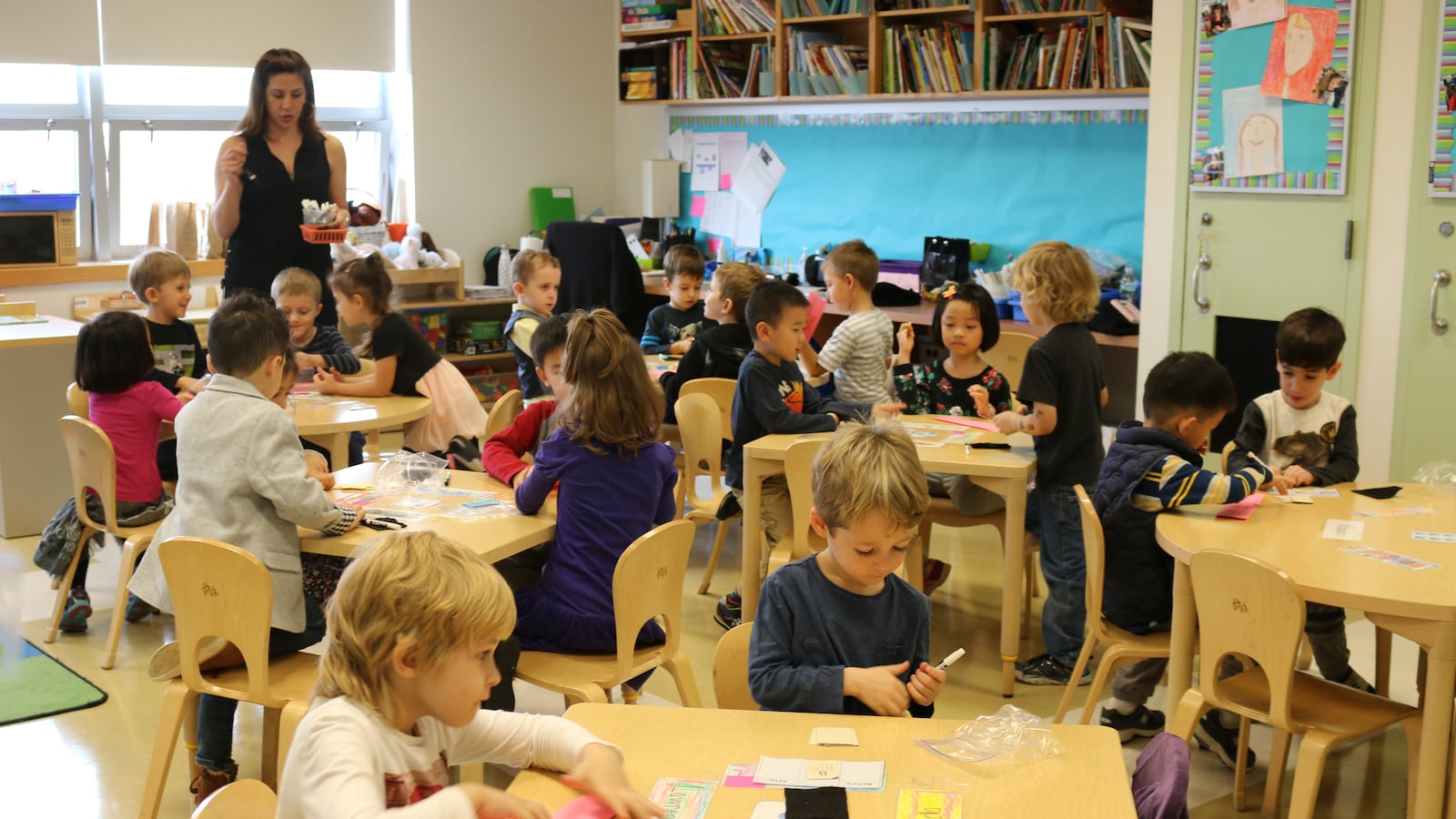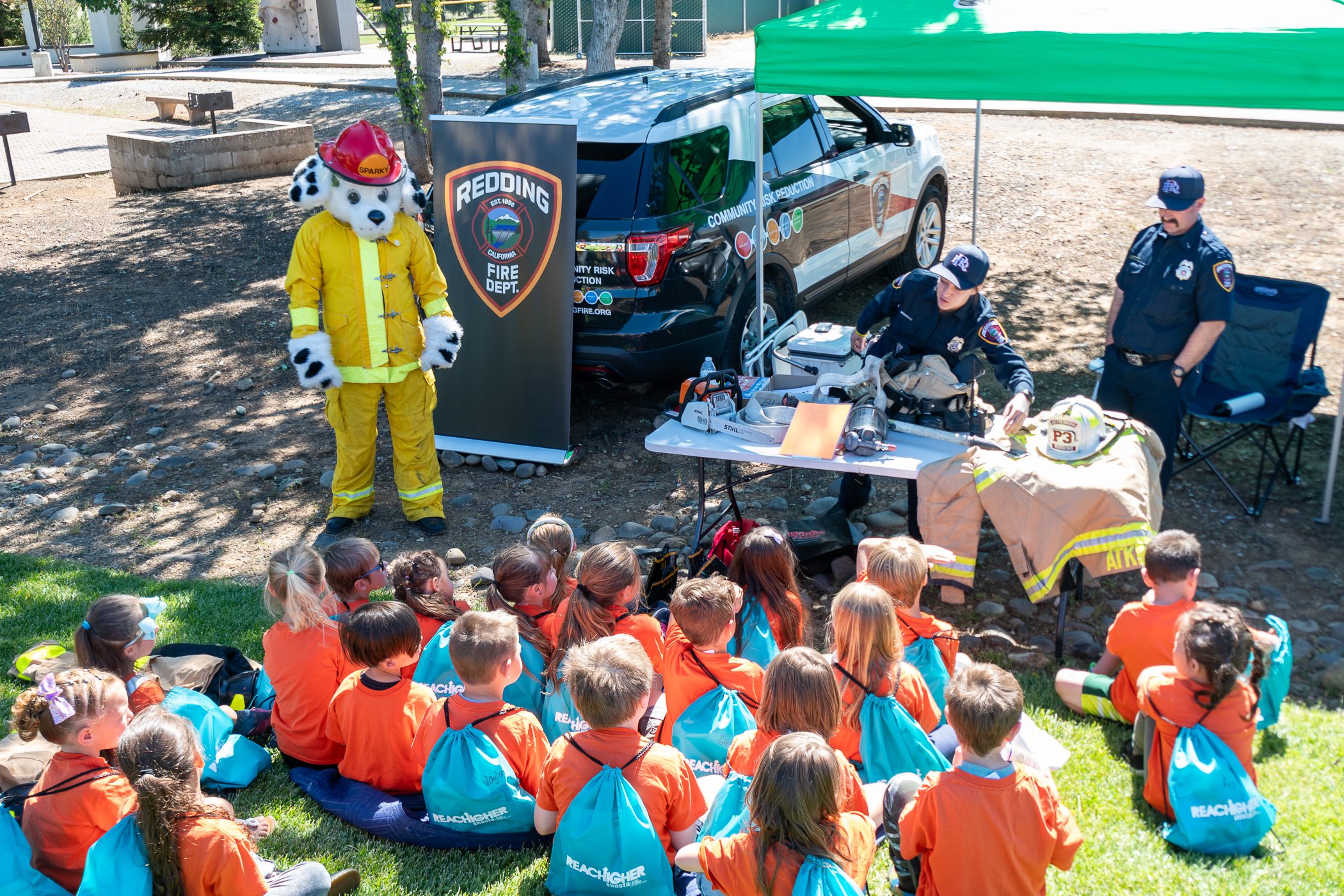How games strengthen critical thinking among Private School students
Wiki Article
The Importance of Interactive Activities in Elementary School Education
Interactive activities play a crucial duty in grade institution education and learning. They engage students and boost finding out outcomes. Through group jobs and hands-on experiments, trainees experience the product in a useful means. This approach accommodates diverse discovering styles and promotes crucial abilities. The advantages extend beyond academics. Checking out the deeper influence of these tasks exposes their relevance fit young learners' futures. What transformations happen when pupils proactively get involved?Enhancing Involvement Through Interactive Knowing
Although conventional mentor methods have their advantages, interactive learning significantly boosts pupil involvement in grade college education and learning. This approach encourages active engagement, enabling students to immerse themselves in the knowing procedure. By using group activities, hands-on experiments, and technology-driven sources, instructors produce an environment where pupils feel more linked to the product.Interactive discovering helps with cooperation among peers, fostering interaction skills and team effort. It also deals with diverse knowing styles, guaranteeing that aesthetic, acoustic, and kinesthetic students can all prosper. Students are a lot more most likely to preserve information when they actively get involved, as opposed to passively getting expertise.
This vibrant technique not just makes finding out enjoyable but likewise instills a feeling of possession in pupils regarding their instructional trip. As they involve with the web content, their curiosity and inspiration to find out boost, laying a strong foundation for future academic success.
Creating Critical Assuming Abilities
Interactive knowing not only improves interaction but also acts as a stimulant for establishing crucial believing abilities in elementary school pupils. Via tasks such as problem-based understanding, disputes, and hands-on experiments, trainees are motivated to assess details, assess different viewpoints, and formulate reasoned final thoughts. These interactive experiences need pupils to doubt assumptions, leading them to believe even more deeply concerning various subjects.
In addition, interactive activities commonly existing real-world circumstances that test trainees to use their expertise artistically. By maneuvering through these difficulties, they learn to recognize pertinent info and make informed decisions. This process promotes not only specific critical thinking yet additionally motivates trainees to express their thought processes, improving their capacity to connect successfully. Because of this, interactive knowing atmospheres cultivate a generation of vital thinkers that are much better prepared to take on complicated problems in their future academic and specialist ventures.
Cultivating Cooperation Among Peers
Fostering cooperation among peers is essential in elementary school education, as it boosts teamwork and interaction abilities. Taking part in group tasks assists students build count on and regard for each other, preparing for reliable cooperation. Analytical with each other enables students to find out from each other and establish a cumulative strategy to challenges.Team Effort and Interaction Abilities
Efficient teamwork and communication abilities are important elements of an effective elementary school education and learning. Participating in interactive activities encourages pupils to team up, share ideas, and solve troubles with each other. Such experiences advertise the advancement of crucial communication capabilities, allowing kids to share their ideas clearly and listen proactively to others. With team effort, trainees find out to value varied perspectives, cultivating a feeling of community and shared duty. Structured team tasks, whether in academics or innovative jobs, improve peer communications, teaching children exactly how to discuss duties and fix disputes. These skills not just add to a favorable class atmosphere yet also prepare students for future joint endeavors in higher education and the office. In general, synergy and communication are foundational to holistic growth in elementary school.Building Trust and Regard
Structure trust fund and regard among peers works as a foundation for effective collaboration in elementary school atmospheres. They are more likely to engage proactively in group tasks when trainees feel valued and respected by their schoolmates. Interactive tasks, such as group projects and cooperative video games, offer opportunities for trainees to pick up from one another, fostering a sense of community. This setting encourages open interaction, allowing students to reveal their ideas and opinions without concern of judgment. As trust builds, trainees become extra ready to share responsibilities and support each various other's knowing. Inevitably, cultivating an ambience of trust fund and regard improves not just academic end results but additionally social advancement, furnishing students with necessary social skills for their future undertakings.Problem-Solving Together
Joint problem-solving involves trainees in critical reasoning and synergy, crucial skills for their scholastic and personal growth. When pupils function together to tackle difficulties, they find out to communicate efficiently, regard diverse point of views, and leverage each various other's staminas. This process improves their capability to assess issues from various angles and establish creative options. Group activities, such as science experiments or mathematics challenges, promote energetic engagement and foster a feeling of area. As students work together, they also construct social skills, learning to jeopardize and discuss, which are crucial for future communications. Eventually, analytical together cultivates an encouraging knowing atmosphere, equipping trainees to take possession of their education and learning while preparing them for collaborative endeavors beyond the class.Motivating Imagination and Development
Encouraging imagination and technology in elementary school education can be considerably boosted via hands-on discovering experiences. These activities allow students to engage straight with materials and concepts, promoting imaginative reasoning. Furthermore, joint team jobs can promote varied concepts and remedies, even more supporting an imaginative setting.Hands-On Learning Knowledge
A multitude of hands-on knowing experiences significantly improves imagination and development in quality institution education and learning. Involving trainees in practical tasks enables them to apply academic understanding in real-world contexts, cultivating deeper understanding. By controling materials and tools, kids develop crucial problem-solving abilities and learn to assume outside package. These experiences inspire inquisitiveness and inspire trainees to discover their interests additionally. Additionally, hands-on activities can bridge different topics, linking science, art, and math in purposeful means. This interdisciplinary strategy encourages pupils to see links and assume artistically. Ultimately, hands-on discovering experiences support a generation of pioneers, outfitting them with the abilities and confidence required to take on future obstacles and add to society in distinct ways.Collaborative Team Projects
Hands-on learning experiences naturally cause the incorporation of joint team jobs, which play an essential duty in promoting imagination and technology in elementary school education and learning. These tasks encourage students to collaborate, sharing perspectives and ideas, which enhances this content analytical abilities and crucial thinking. Through cooperation, pupils find out to connect properly and regard diverse point of views, crucial skills for their future. Additionally, group projects provide possibilities for students to experiment with different functions, boosting their flexibility and confidence. Engaging in this participating setting permits them to discover their creativity, pressing the borders of standard discovering. Inevitably, joint group tasks not just enhance the academic experience however also prepare students for real-world obstacles that need teamwork and innovative thinking.Structure Self-confidence and Independence
As pupils participate in interactive activities, they usually discover possibilities to develop confidence and independence. These tasks, whether they involve hands-on projects, role-playing, or problem-solving jobs, encourage trainees to take effort and reveal their ideas openly. By taking part in such experiences, trainees learn to trust their capacities and make decisions without relying solely on support from peers or educators.Additionally, interactive activities cultivate a sense of ownership over discovering. They establish important thinking abilities and strength when students tackle obstacles collaboratively or individually. This process not only enhances their understanding of the subject but likewise encourages them to take risks in their understanding journey.
As they navigate various interactive circumstances, pupils slowly shed their insecurity, paving the method for enhanced self-worth - Private School. Eventually, these activities play an essential function in supporting independent and certain students, equipped to face future scholastic and individual challenges
Creating a Positive Classroom Atmosphere
While cultivating a favorable class atmosphere is essential for effective understanding, it requires intentional effort from instructors to produce a space where trainees feel safe, highly regarded, and engaged. A favorable atmosphere encourages cooperation, permitting trainees to reveal themselves without concern of judgment.Educators can attain this by establishing clear expectations, advertising common respect, and recognizing individual contributions. Integrating interactive tasks further enhances involvement, making finding out more satisfying and vibrant.
Additionally, a nurturing atmosphere supports social-emotional advancement, as trainees find out to browse connections and resolve conflicts. Educators play an important role in modeling favorable actions and enhancing a culture of generosity and inclusivity.
Often Asked Concerns

How Can Parents Support Interactive Learning in the house?
Parents can support interactive learning in your home by giving engaging materials, urging hands-on tasks, integrating academic games, promoting discussions, and producing a nurturing atmosphere that advertises interest and expedition in their youngsters's discovering experiences. (Grade School)What Kinds of Interactive Tasks Are The Majority Of Reliable?
Hands-on projects, collaborative games, role-playing situations, and instructional technology applications are among one of the most effective interactive tasks. These engage trainees, enhance essential thinking abilities, and promote synergy, eventually promoting a much deeper understanding of numerous subjects.Exactly How Do Interactive Tasks Deal With Various Knowing Styles?
Interactive tasks engage visual, auditory, and kinesthetic students by integrating diverse techniques. These activities assist in understanding via hands-on experiences, collective discussions, and aesthetic aids, allowing trainees to soak up information according to their favored understanding design.What Are the Costs Connected With Implementing Interactive Activities?

Applying interactive activities incurs prices such as materials, training for educators, innovation upgrades, and prospective center modifications. Spending plan constraints can additionally influence the frequency and range of activities supplied to pupils in academic settings.
How Can Teachers Evaluate the Effect of Interactive Discovering?
Teachers can analyze the impact of interactive learning through monitorings, trainee feedback, efficiency metrics, and relative analysis of examination ratings before and after execution, ensuring an extensive understanding of involvement and understanding retention improvements.Via activities such as problem-based knowing, disputes, and hands-on experiments, pupils are urged to examine info, evaluate various viewpoints, and formulate reasoned conclusions. Interactive tasks often existing real-world scenarios that test pupils to use their internet understanding artistically. Engaging in interactive tasks motivates students to team up, share ideas, and solve issues together. Interactive tasks, such as team projects and participating description games, give opportunities for students to discover from one an additional, fostering a feeling of neighborhood. As trainees involve in interactive activities, they often discover opportunities to build confidence and freedom.
Report this wiki page